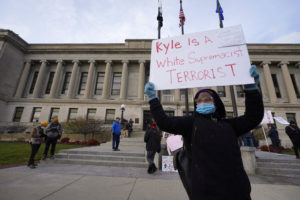
President Donald Trump met with North Korean leader Kim Jong Un in Hanoi last week. This was a long-awaited summit in which many of us expected a breakthrough in advancing peace and denuclearization.
Unfortunately, however, no deal was made. Kim offered dismantling of the Yongbyon nuclear complex in exchange for partial sanction lifts. Trump, however, refused to accept his offer because it would still leave many of the other North Korean nuclear arsenals open, while eliminating crucial sanctions that would prevent North Korea from producing more nuclear arms.
How can we advance from this disagreement? We all want peace, but peace seems to mean different things for different players.
First, the U.S. wants a kind of peace that comes from being placed as the regional leader. Whichever path to peace is taken, the outcome must produce the most interest for the U.S., certainly outpacing China in its influence in East Asia.
Second, the North Korean leadership wants a kind of peace that comes from being guaranteed safety. The leadership currently holds power through possessing nuclear arms and money. Nuclear arms give the leadership a leverage to negotiate with the international community, while money allows the leadership to finance the military and the country as a whole. The international community, however, demand that North Korea give one up, either money or weapons. The North Korean leadership worries that if it gives one up, it will lose the other too.
Third, North Korean citizens want peace that comes from being guaranteed safety, but in a different sense. They will be safe only when the oppressive government is removed. As long as the dictatorial government lives, there is no peace for the ordinary North Korean citizens.
Fourth, South Korea, so far a mediator between North Korea and the U.S., wants peace that comes from stability. Citizens of South Korea care about reunification, as long as it doesn’t disturb them too much, both socially and economically. If reunification is too costly, it might be difficult for South Korea to commit to reunification. Nonetheless, disarmament and denuclearization of North Korea is crucial for South Korea’s security.
When the concept of peace is different for us all, we might think that we are at an impasse. But we nonetheless have reasons to remain hopeful. Neither the U.S. nor North Korea bashed on each other after the summit, an indication that conversations and negotiations will continue, possibly with South Korea’s further mediation. Moreover, now that we know exactly where the disagreement lies between North Korea and the U.S., we can target these tough issues more precisely to reach the best compromise. The current situation might seem like a deadlock, but we will find ways to reach peace, as we have always done.
Jaywon Choi



